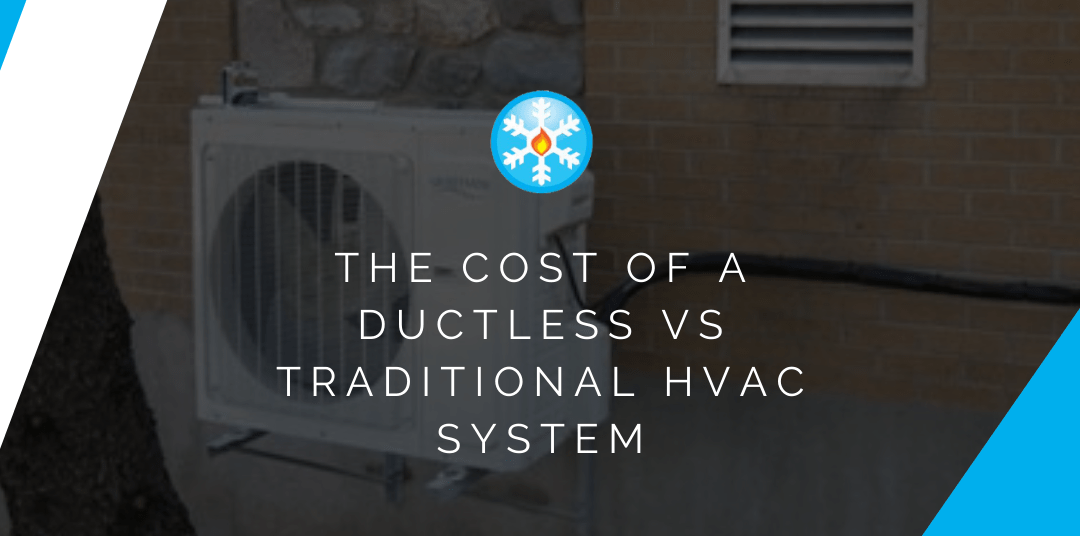Traditional central heating and air conditioning systems have been the standard for many years. Recently, however, more and more people are turning to ductless systems to maximize their energy efficiency and solve problem areas within their homes. One of the most asked questions about ductless HVAC systems is how the cost compares to a traditional system. We’ll break down the information based on upfront costs, as well as operating costs.

Upfront Costs
If you are simply wanting to replace an old HVAC system and already have ducts installed throughout your home, a traditional forced air system will be cheaper to purchase and install. In this scenario, a traditional system will save about 30% over converting to ductless, according to Energy.gov.
In contrast, if you do not have ducts already installed, the upfront cost of a traditional system with the addition of all the necessary ductwork will likely double your final bill and make ductless a more economical option.
Ductless systems are installed on the walls of homes and do not require any ducts. This means that you would pay for each wall handler unit that you needed, but would not have to pay for the time-intensive task of cutting holes in walls, floors, and ceilings to run ductwork. A ductless system makes a lot of sense for new home additions and areas where zoned heating would be preferred.
Operating Costs
Operating a ductless system is usually less expensive than a standard forced air one. This is because regular heating and cooling systems use ducts to send air to all areas of the home equally, whether the rooms are being used or not. On top of the energy waste associated with heating unused spaces is the fact that ducts are notorious for leaking air. Energy.gov estimates that about 30% of the energy used is lost as the air travels through the ductwork. In areas of the country that use a lot of air conditioning, a ductless system can save some homeowners up to $1000 per year in operating costs.
With a ductless system, you do not lose any energy from ducts, which greatly increases the energy efficiency. You can also heat or cool only the rooms that are occupied or in use. For most homes, this results in energy savings, however, large homes with wide open spaces would need extra wall units, so they would not benefit as much from a ductless system.
Meridian Heating and Air
As you can see, there are many factors affecting which type of system would be best for you and your family. Budget, climate, home layout, and existing equipment all play a part in the equation. That is why our recommendation is to chat with an HVAC specialist who can walk you through the pros and cons of each system. The experts at Snowflake Air can help you make the best possible decision and provide free estimates. If you are looking for HVAC in Meridian, contact Snowflake Air today.





Trackbacks/Pingbacks